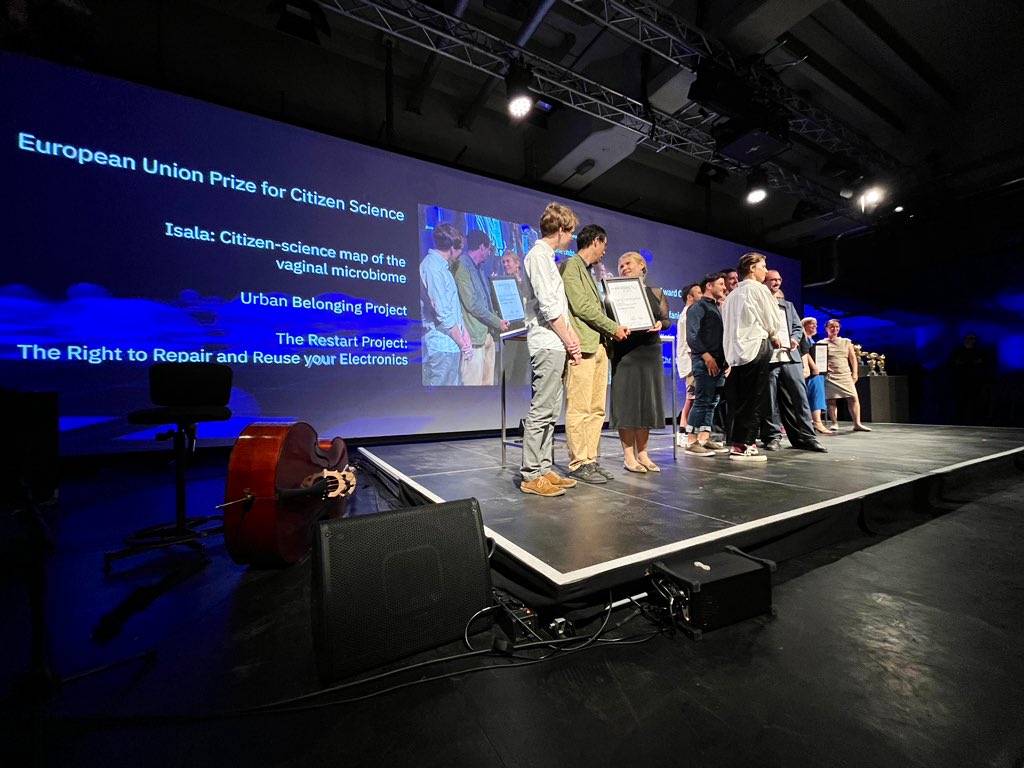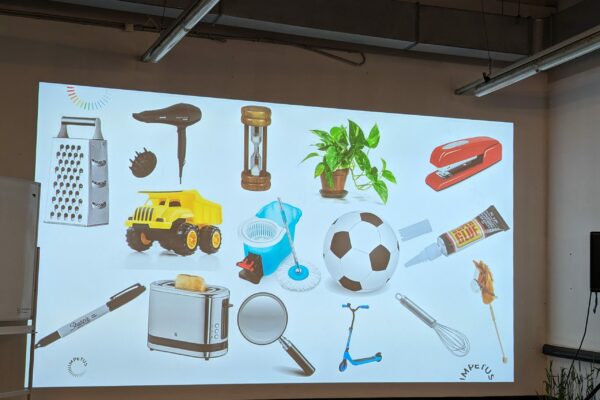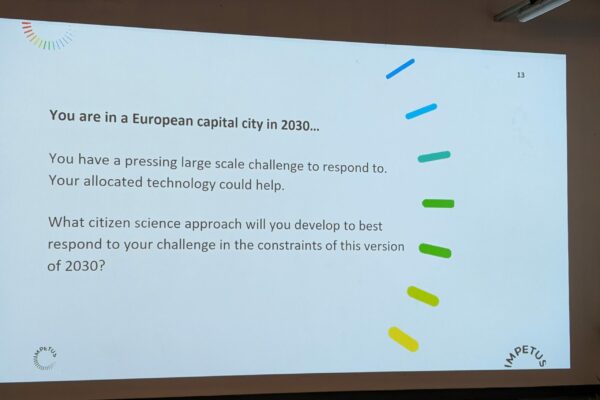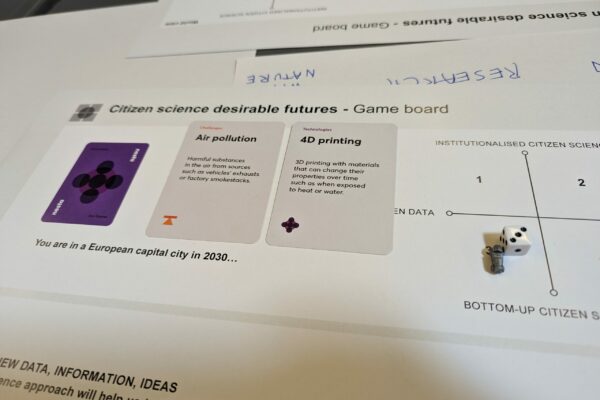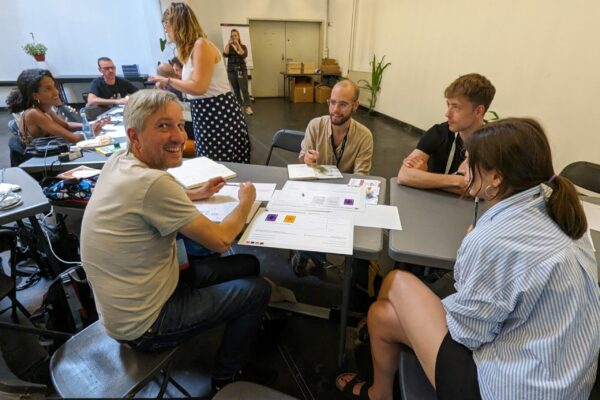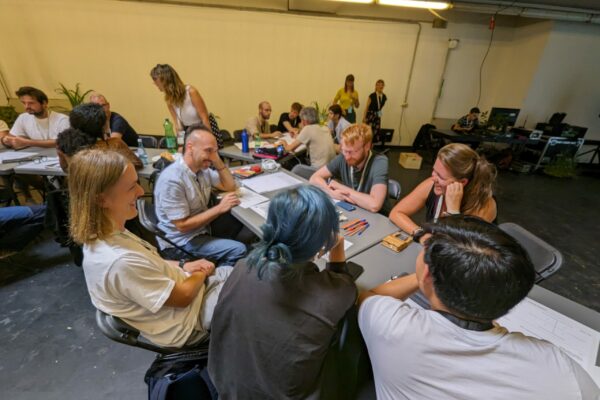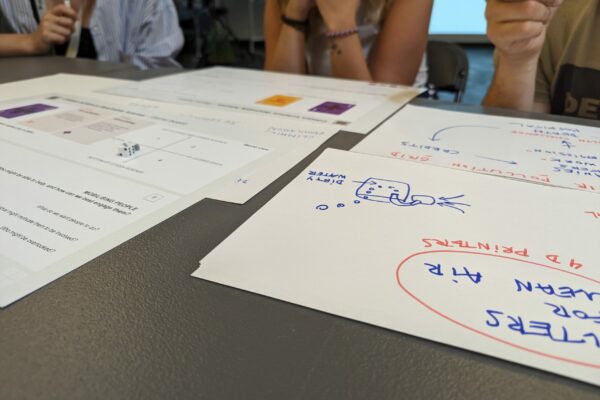Where do we see citizen science being at the end of the decade? This was a question posed by our partners from Nesta during a workshop on Citizen Science Futures for Sustainability at this year’s Ars Electronic festival- Owns the Truth?
This fantastic and thought-provoking session was organised and run by Alex Albert and Aleks Berditchevskaia, at Nesta’s Centre for Collective Intelligence Design, and focussed on how we can harness the potential of citizen science for the benefit of everyone. More specifically the workshop sought to draw out the desirable futures of citizen science and the potential trajectories citizen science might take over the next 5-7 years across the spectrum of open and closed data practices, and top-down vs. bottom-up approaches.
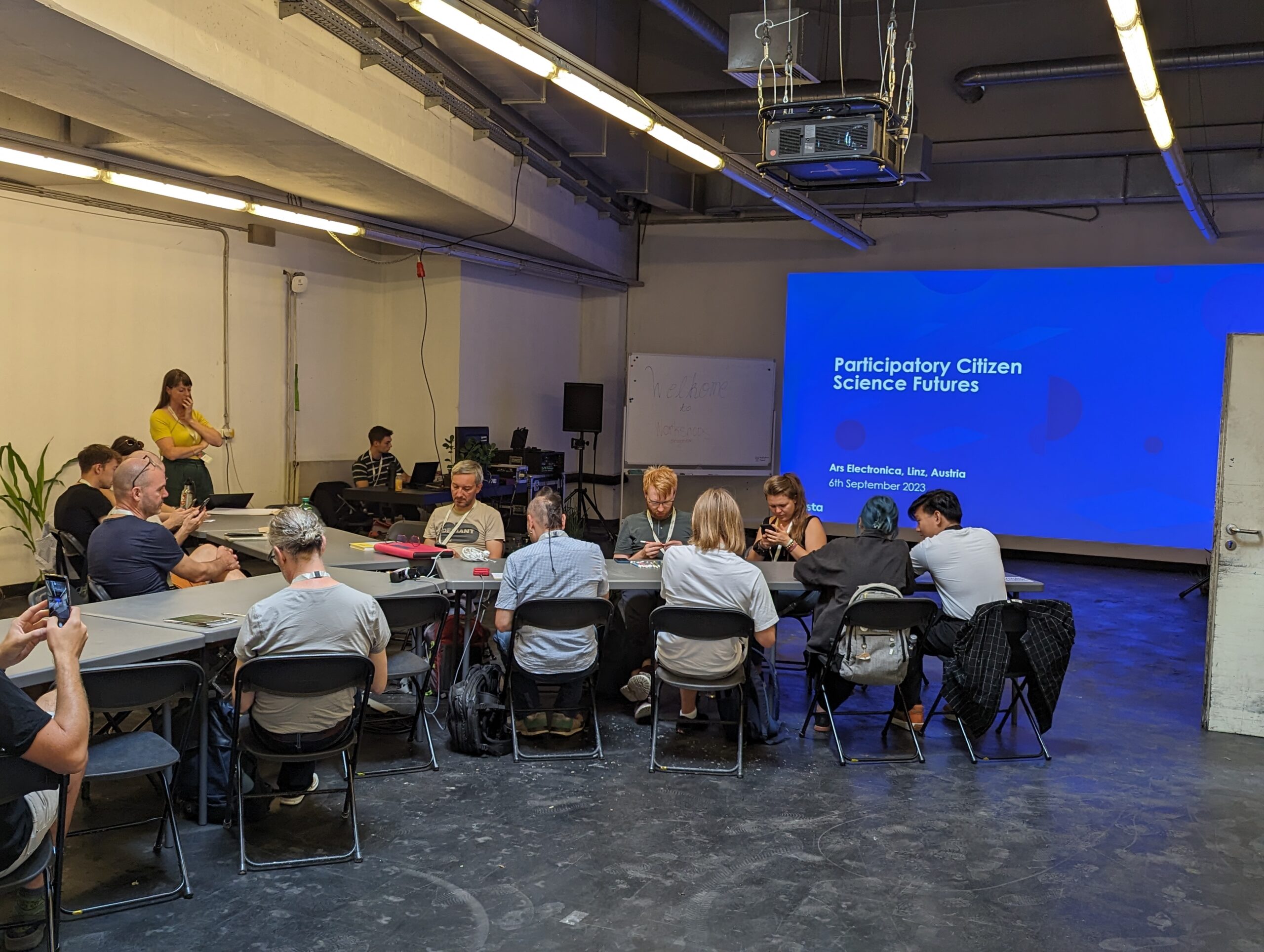
In teams, the workshop participants were catapulted into the not-so-far future of 2030. Each team was given a problem to solve, a new but realistic technology innovation, and a randomly selected alignment to one of the worldviews mentioned above. They were then tasked to develop a new citizen science initiative to help tackle the problems of the future (or perhaps more appropriately even, issues we face today that might still plague us in the year 2030).
The teams had to flex some creative muscle, as well as their problem-solving and project management skills to develop a pitch for their citizen science project, detailing how citizen science practices might incorporate their new technologies, while also fitting into their designated worldview. Ideas ranged from 4D printed biosensing toys, to helping determine the impact air pollution has on young children; digital assistance which would provide you a guide to the cities you live in; and wearable devices to help the wearer fight the effect of climate change!
After a heated discussion (it was very hot in Linz this week), it was time for the pitches! With each group given three minutes to share their prospective projects, and a chocolate prize on the line, each group gave it everything they had, to be on top. After the votes had been cast, the winning idea was…. 4D printed biosensors for children’s toys to help monitor air pollution!
Although we all had a lot of fun working together and creating desirable futures for citizen science in Europe, the ideas discussed are also crucial for citizen science currently. The policies being developed today will impact the future we all share. It is the drive of the IMPETUS project that citizen science is at the forefront of tackling the problems that we are yet to face, together!
A major focus at this year’s festival was recognizing the role of citizen science in Europe and how this might shape future research. The creation of the new EU Prize for Citizen Science in association with the IMPETUS project, showcases some of the best citizen science projects happening now, and how they are driving positive change.
Click here to learn more about the EU Prize for Citizen Science winner, as well as the projects that received honourable mentions.
